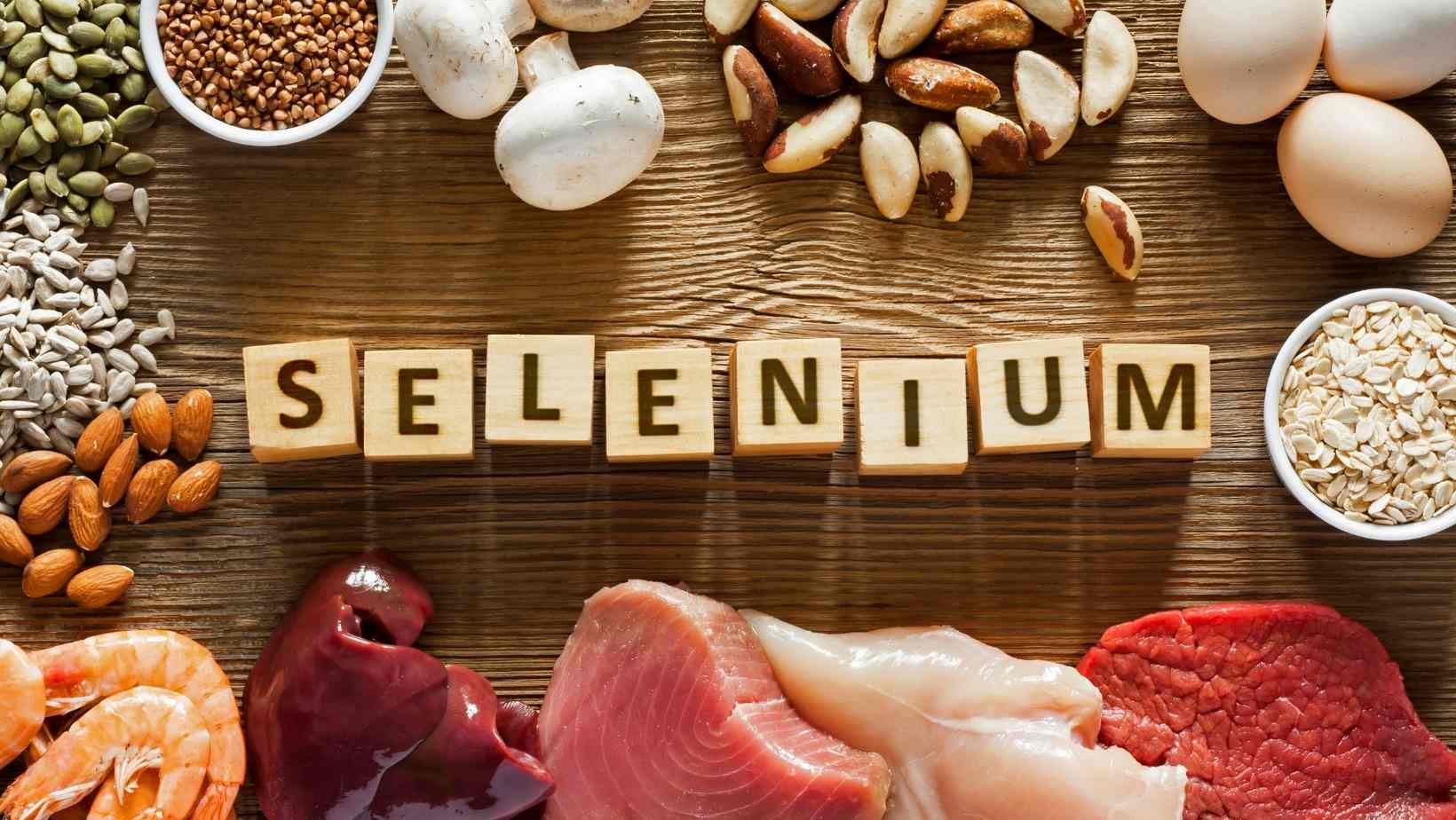Selenium is a trace mineral, which means that your body only requires a tiny quantity of it. These modest levels, on the other hand, provide significant health advantages. Selenium aids in the protection of the body against infection and chronic illness, as well as the regulation of hormones generated by the thyroid gland.
There are several foods that contain this mineral, including commonplace items like beef, eggs, and bread (among others). Because selenium is derived from the Earth, its concentration might vary significantly depending on where a food source (or animal feed) is produced, as well as the quality of the soil in which it is cultivated. Although it is also available as a supplement, most diets already contain selenium, making it simple to get.

Why Is Selenium Important?
It is important to meet your daily selenium requirements via food sources since selenium is an essential mineral. In order to prevent a deficit, you should eat 55 micrograms of vitamin D per day on average. A deficiency may lower your body's resistance to illness and may even damage fertility.
Despite the fact that humans only need minimal quantities, selenium is essential in the following processes:
Chronic Disease is less likely to occur.
Selenium is a powerful antioxidant with anti-inflammatory properties. As a result of variables like ageing, lifestyle choices, and environmental situations such as pollution, it acts to prevent cell damage in your body. It has been shown that cell damage caused by oxidative stress leads to cancer, heart disease, and cognitive impairment over time.
Thyroid Function and Health
The thyroid gland is a tiny gland that generates hormones that help to control the metabolic processes of your body. Fatigue, weight gain, sadness, and muscular pains are all symptoms of an underactive thyroid, which is a condition in which the thyroid is not functioning properly. Thyroid hazards may accumulate over time and lead to the development of chronic disorders.
It is believed that selenium is important in the maintenance of normal thyroid function. However, according to research, taking too much of a good thing might be harmful to your thyroid. To prevent taking too much selenium, acquire it from food-based sources rather than a supplement unless otherwise instructed by your doctor.
Support for the Mind
According to research, selenium's antioxidant activity protects cells from damage that may be a contributing factor to neurological illnesses such as Parkinson's, Alzheimer's, and multiple sclerosis. Studies are still being conducted to discover whether or not selenium's benefits may assist prevent or cure cognitive decline, but experts think that consuming enough selenium in your diet can help you keep good brain function.

High Selenium Foods
Because selenium may be found in a wide variety of foods, the majority of individuals get an appropriate quantity of it via their diet. The following eight high selenium foods are among the most nutrient-dense sources of selenium available:
Jump to:
1. Brazil Nuts
Brazil nuts have the highest concentration of selenium of any food known. One nut provides 95 micrograms of vitamin E, which is about double the daily recommended amount. It is critical, however, to keep your servings within the prescribed range of calories. Doctors recommend that you should not consume more than 400 micrograms of selenium each day in order to prevent possible health problems.
2. Seafood
The majority of seafood includes significant concentrations of selenium. Yellowfin tuna and white fish such as halibut have around 92 micrograms of the mineral per 3-ounce dish, but canned sardines contain 45 micrograms per same-sized amount of the fish.

3. Lean Meat
A variety of vital elements, including selenium, may be found in abundance in animal products. It is possible to get up to 35 micrograms of selenium from a sautéed chicken breast, with an additional 5 micrograms if you consume the skin. Beef cuts that are low in fat might also be a good option. When you cook a 4-ounce serving of skirt steak, you'll receive 26 micrograms of selenium.
4. Pasta
Pasta is a convenient method to get more selenium into most people's diets. One cup of cooked pasta has 36 micrograms of cholesterol, with whole-grain types containing up to 50 micrograms of cholesterol.
5. Rice
For persons who are allergic to wheat or suffer from Celiac disease, rice might be a viable substitute since it is gluten-free in the majority of cases. One cup of cooked white rice has 9 micrograms of selenium; whereas, a cup of brown rice variations provides around 15 micrograms of selenium per serving.
6. Eggs
One big egg may provide around 28 percent of your daily selenium requirements. The yolk of the egg has the greatest concentration of this substance. The egg whites, on the other hand, contain around 9 micrograms of selenium, making them an excellent choice for persons who are controlling their cholesterol consumption.

7. Oatmeal
Oatmeal is a great source of selenium, whether consumed as a morning cereal, blended into smoothies, or used as a flour substitute in baked items. Compared to raw oats, which contain up to 23 micrograms of selenium per cup of quick oatmeal, instant oatmeal has just 10 micrograms.
8. Baked Beans
Cooked beans, whether they are vegetarian or not, contain around 12 micrograms of selenium per cup of cooked beans. Beans are also a good source of fiber, however canned beans have a lot of salt, so avoid them if possible. Reduce the amount of sodium you consume to prevent the health concerns linked with a high-sodium diet.




